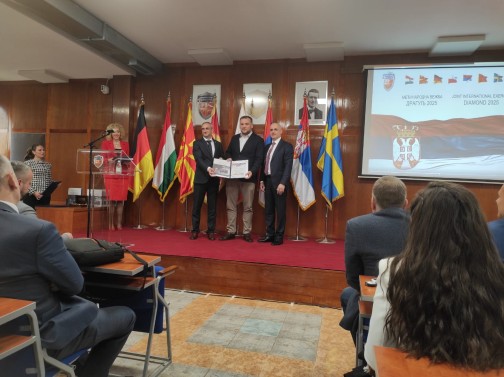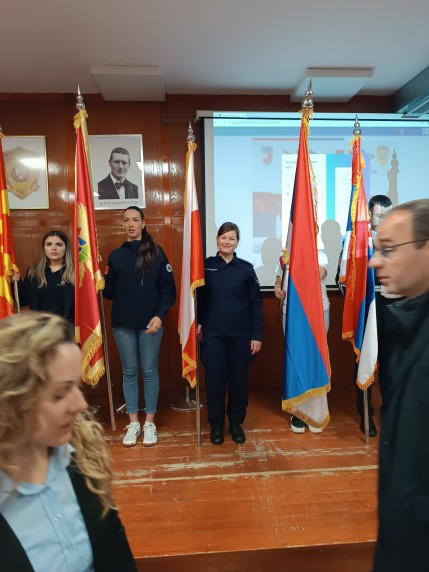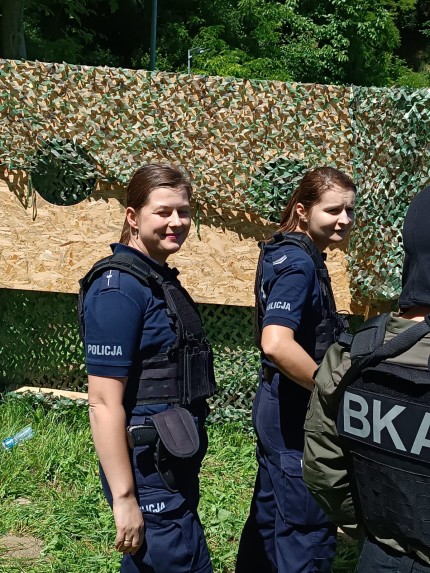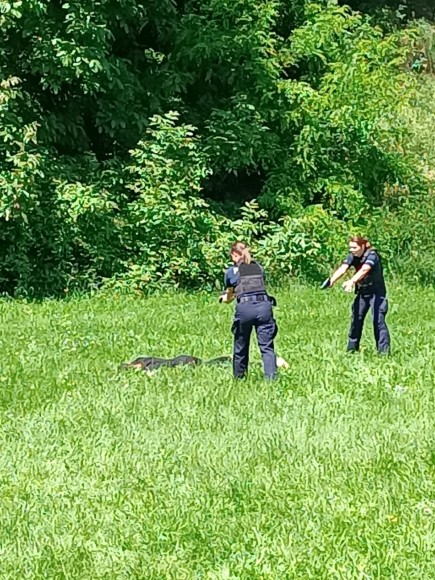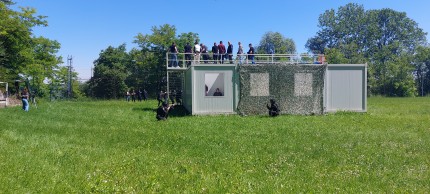From May 12 to 16, 2025, a delegation of students from the Police Academy in Szczytno, led by dr Grzegorz Bąk – Vice-Dean for Student Affairs, participated in an international capstone exercise organized by the University of Criminal Investigation and Police Studies in Belgrade. The event brought together police representatives from Germany, Sweden, Montenegro, North Macedonia, Bosnia and Herzegovina, Hungary, and Serbia.
During the five-day stay in Serbia, the student delegation – comprising Junior Warrant Officer Barbara Jastrzębska and Staff Sergeant Aleksandra Orzech, both master's students in Criminology – took part in hands-on training exercises focused on responding to a robbery case. The training consisted of several stages, during which international student teams carried out all procedures related to handling a robbery case under simulated conditions. These included: reporting the crime and initiating the first response, receiving and logging emergency calls, responding at the scene (safety measures and securing the area), conducting an initial assessment, interviewing victims and witnesses, collecting evidence and documenting the crime scene (sketches, notes, photographs), reviewing CCTV footage, developing suspect descriptions and profiles, coordinating the investigation with forensic and crime analysis experts, interpreting forensic reports, criminal profiling, analyzing evidence and trace materials, tracking the suspect using technology, planning and executing the arrest, and preparing the official crime report.
An international group of mentors supervised the proper conduct of the exercise, including dr Grzegorz Bąk – Vice-Dean for Student Affairs at the Police Academy in Szczytno. Participation in the initiative allowed not only for observation but above all facilitated the exchange of experiences and best practices among participants from Serbia, Poland, Germany, Sweden, Montenegro, North Macedonia, Bosnia and Herzegovina, and Hungary. It also provided the opportunity for active involvement in the training process at the University of Criminal Investigation and Police Studies in Belgrade. Participants were able to compare Polish and Serbian criminal law systems and gain insight into the organizational structure of Serbian law enforcement agencies.
During the official closing ceremony, which summarized the entire training, the Rector of the University of Criminal Investigation and Police Studies in Belgrade – Prof. Dr. Zoran Đurđević – emphasized that international cooperation and knowledge exchange are fundamental to continuously improving police education and, consequently, enhancing the effectiveness of criminal investigations on the international stage.



